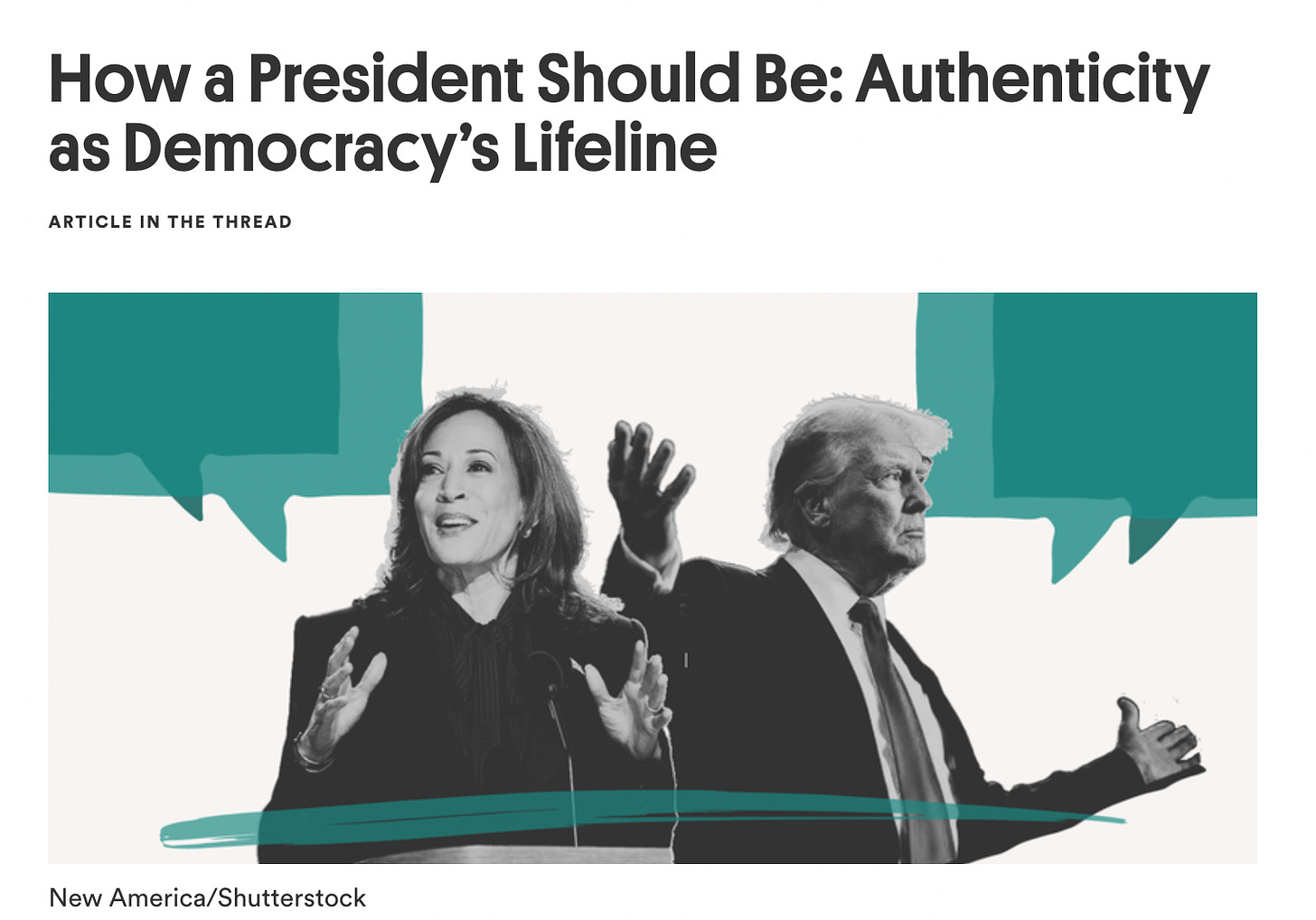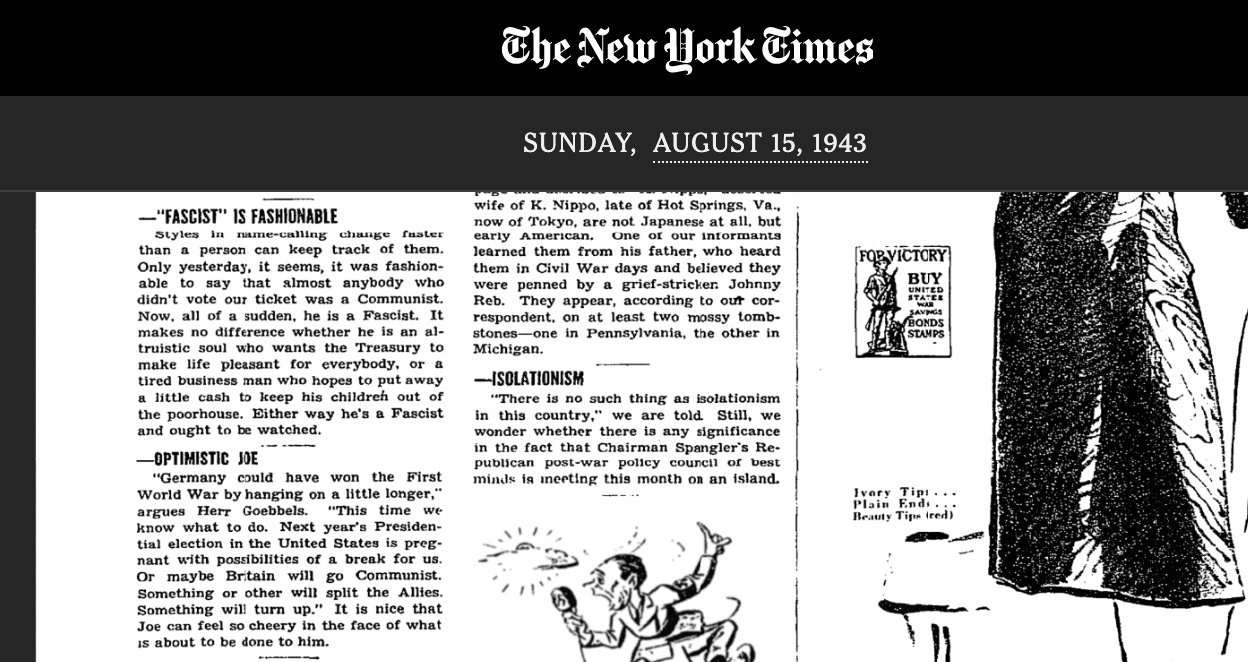How a President Should Be: Authenticity as Democracy’s Lifeline
At first, I grappled with the electorate’s paradoxical dance with authenticity. Now I see it as straightforward--and democracy’s last hope for survival.
After Donald Trump’s 2016 inauguration, my public-facing role as a presidential historian dramatically shifted from sage to therapist. From lecture halls to champagne-soaked wedding receptions, a disenchanted populace sought me out to eagerly unload their ruminations on the nation’s highest office. Initially, I welcomed the flood of cynicism from some, expecting it to subside after Joe Biden’s 2020 inauguration. Instead, it swelled, peaking in 2024 as Trump, mired in controversy, outpaced Biden in the polls.
This dissonance between our proclaimed ideals and the leaders we choose drove me to pose a seemingly simple, critical question: “How should a president be?” During my first year as an Us@250 Fellow at New America, I embarked on a 13-stop discussion tour across the United States. Among the symphony of varied responses, I heard one refrain that struck a resonant chord: Authenticity.
At first, I grappled with the electorate’s paradoxical dance with authenticity. Earlier this year, a disquieting question haunted me: Was Trump’s lead in the polls a reward for his unbridled persona? Trump’s base continues to find his bravado-as-platform refreshingly genuine and his authenticity-as-spectacle intoxicating. Meanwhile, Biden was at a numerical disadvantage in part due to his “return to decency” pledge ringing hollow, tarnished by Gaza—and that was months before the debate’s damning display.
As a scholar, I’ve long been confounded by Trump’s unprecedented resilience. In American history, presidents of his kind rarely quit before they’re abandoned—but they’ve always been abandoned. (See Watergate.) In these uncharted waters, I bombarded my discussion partners and audiences with a deluge of questions and historical challenges.
Their answers were jarring: Modern voters value authenticity over idealism, favoring leaders who instinctively don whatever they want, strategic advisors be damned. This revelation underscores the profound truth that effective leadership, like fine art, demands both skill and soul. Winning office is just the beginning; the real test lies in navigating power's labyrinth while maintaining an unwavering connection to constituents. Authenticity, it seems, is the bridge connecting policy, practice, and our ever-widening political divides.
I was still wrestling with these insights in July, as the tour's echoes faded, when Biden’s debate performance shattered my illusions. His promise of four more competent years fell flat, his diminished faculties revealing a stark decline he’d struggled to conceal. Authentic leaders, as Trump has ironically demonstrated, don’t hide their true selves.
“Authenticity, it seems, is the bridge connecting policy, practice, and our ever-widening political divides.”
Enter Kamala Harris. As a native Californian, I’ve had a front-row seat to the vice president’s political ascent, watching her transition from San Francisco’s district attorney to the national stage. Now, as she vies for president, Harris strikes me…
To read the rest of the essay, please head over to New America, the bipartisan think tank where I’m a senior fellow. It was originally published on The Thread, a publication of New America, this morning.
See you soonish! In the meantime, you can find me on Twitter and Instagram and my books on Bookshop, Amazon, and your local bookstore or library. If you’d like me to sign or personalize my books, purchase copies from Oblong.





